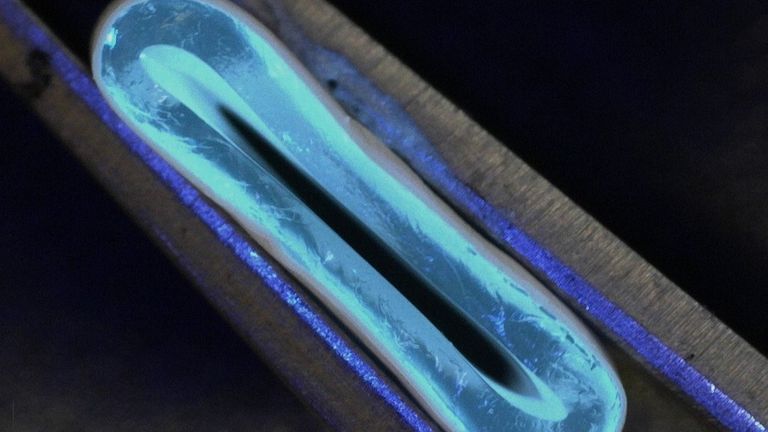3D-printed blood vessels which closely mimic the properties of human veins could transform the treatment of cardiovascular diseases, scientists have said.
In a two-stage process, a team of researchers led by the University of Edinburgh’s School of Engineering used a rotating spindle integrated into a 3D printer to create tubular grafts made from a water-based gel.
Next, they reinforced the printed graft in a process known as electrospinning, which uses high voltage to draw out thin nanofibers, coating the artificial blood vessel in biodegradable polyester molecules.
The team said the flexible gel-like tubes, which are as strong as natural blood vessels and could be easily integrated into the body, could replace the human and synthetic veins currently used to re-route blood flow in heart bypass operations.
According to the researchers, this could limit the scarring, pain and infection risk associated with the removal of human veins in the 20,000 heart bypass operations performed each year in England alone.
The team said the tubes, which can be made between 1mm and 40mm in diameter, could reduce the failure of small synthetic grafts which can be hard to integrate into the body.
Lead author Dr Faraz Fazal said: “Our hybrid technique opens up new and exciting possibilities for the fabrication of tubular constructs in tissue engineering.”
Principal investigator Dr Norbert Radacsi added: “The results from our research address a long-standing challenge in the field of vascular tissue engineering – to produce a conduit that has similar biomechanical properties to that of human veins.
“With continued support and collaboration, the vision of improved treatment options for patients with cardiovascular disease could become a reality.”
The next stage of the study will involve researching the use of the blood vessels in animals, in collaboration with the university’s Roslin Institute, followed by trials in humans.
The research, published in Advanced Materials Technologies, was carried out in collaboration with Heriot-Watt University.



























